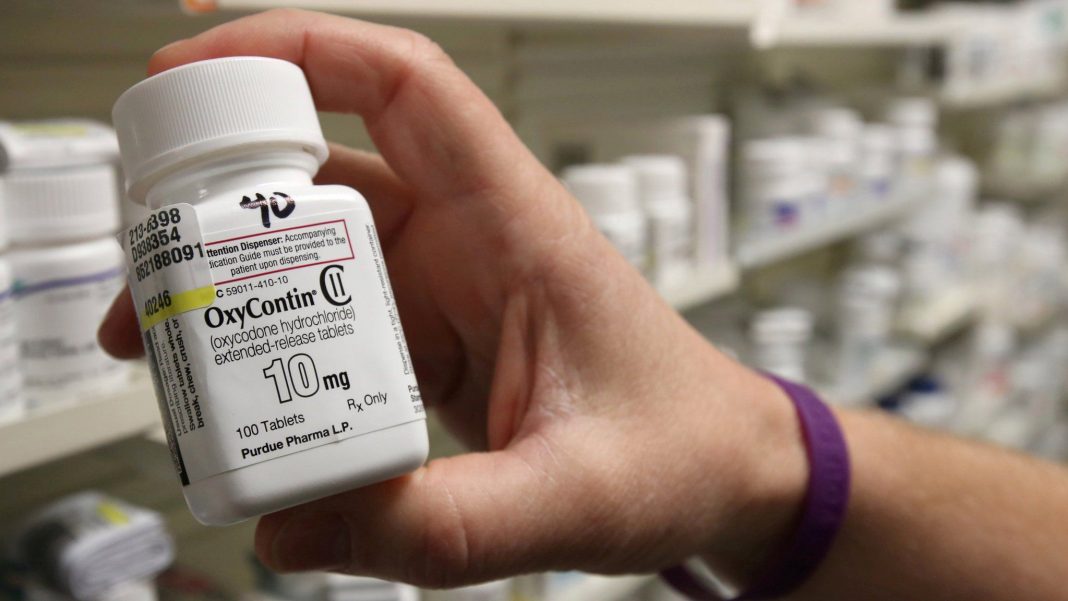WASHINGTON DC, USA — The US Supreme Court on Thursday, June 27, 2024, rejected a contentious settlement that would have allocated billions of dollars to opioid treatment programmes and victims of the nation’s opioid epidemic while shielding the Sackler family from future lawsuits.
The family, which made its fortune through the sale of prescription opioids, faced a significant legal blow with this decision.
Justice Neil Gorsuch wrote the opinion for the 5-4 majority. “The Sacklers seek greater relief than a bankruptcy discharge normally affords, for they hope to extinguish even claims for wrongful death and fraud, and they seek to do so without putting anything close to all their assets on the table,” Gorsuch wrote. “Describe the relief the Sacklers seek how you will, nothing in the bankruptcy code contemplates (much less authorises) it.”
Justice Brett Kavanaugh, in a dissent joined by Chief Justice John Roberts and Justices Sonia Sotomayor and Elena Kagan, warned of the decision’s “devastating” impact on thousands of opioid victims.
“As a result, opioid victims are now deprived of the substantial monetary recovery that they long fought for and finally secured after years of litigation,” Kavanaugh wrote. He urged Congress to amend US bankruptcy law to “fix the chaos that will now ensue.”
The court’s ruling focused on the legal boundaries of bankruptcy law, particularly whether it allows third parties like the Sacklers to avoid future liability.
Gorsuch noted that the bankruptcy code does not specifically grant courts the authority to provide such protections.
Although the decision could unravel Purdue Pharma’s current reorganization plan, Gorsuch suggested that this might lead to more favourable negotiations for victims.
The case centred on Purdue Pharma, the maker of OxyContin, and its leaders, who aggressively marketed the drug in the early days of the opioid crisis.
The Sackler family had agreed to pay $6 billion to families and states as part of an agreement to wind down Purdue Pharma. In exchange, the family sought immunity from future civil liability claims.
Purdue Pharma marketed OxyContin as a safer, less addictive painkiller, leading to widespread prescription and subsequent addiction among Americans.
Lawsuits and investigations revealed that the Sackler family continued to promote the drug despite knowing its addictive properties.
From 1999 to 2021, nearly 645,000 people died from opioid overdoses in the United States, according to the Centers for Disease Control and Prevention.
“Both sides of this policy debate may have their points,” Gorsuch wrote. “But, in the end, we are the wrong audience for them.”
He emphasised that Congress should resolve whether third parties can be shielded from future lawsuits.
“Our only proper task is to interpret and apply the law as we find it, and nothing in present law authorizes the Sackler discharge,” he added.
In a statement, Purdue Pharma expressed disappointment with the ruling, describing it as “heart-crushing” and a setback for victims and opioid crisis abatement efforts.
“Today’s ruling invalidates a settlement supported by nearly all of our creditors… that would have delivered billions of dollars for victim compensation, opioid crisis abatement, and overdose rescue and addiction treatment medicines,” the statement read. Purdue vowed to continue pursuing a resolution that provides significant resources for opioid abatement.
The families of the late Mortimer Sackler and Raymond Sackler also expressed disappointment, maintaining hope for a negotiated resolution.
“The unfortunate reality is that the alternative is costly and chaotic legal proceedings in courtrooms across the country,” they said.
Supporters of the bankruptcy argued that the lengthy process was unlikely to yield additional money from the Sackler family and that most known opioid victims and their families supported the agreement.
However, the Justice Department argued that the deal was unfair to victims, especially potential future victims.
The US Trustee, a part of the Justice Department, opposed the plan, calling it an “abuse” and raising constitutional concerns about barring individual lawsuits against the Sacklers.
The Supreme Court’s decision means that Purdue Pharma’s proposed transformation into Knoa Pharma, a company intended to focus on distributing opioid addiction treatments and overdose reversal medicines, remains uncertain.
This ruling marks a critical juncture in the ongoing legal battles surrounding the opioid epidemic and the accountability of those who profited from it.







